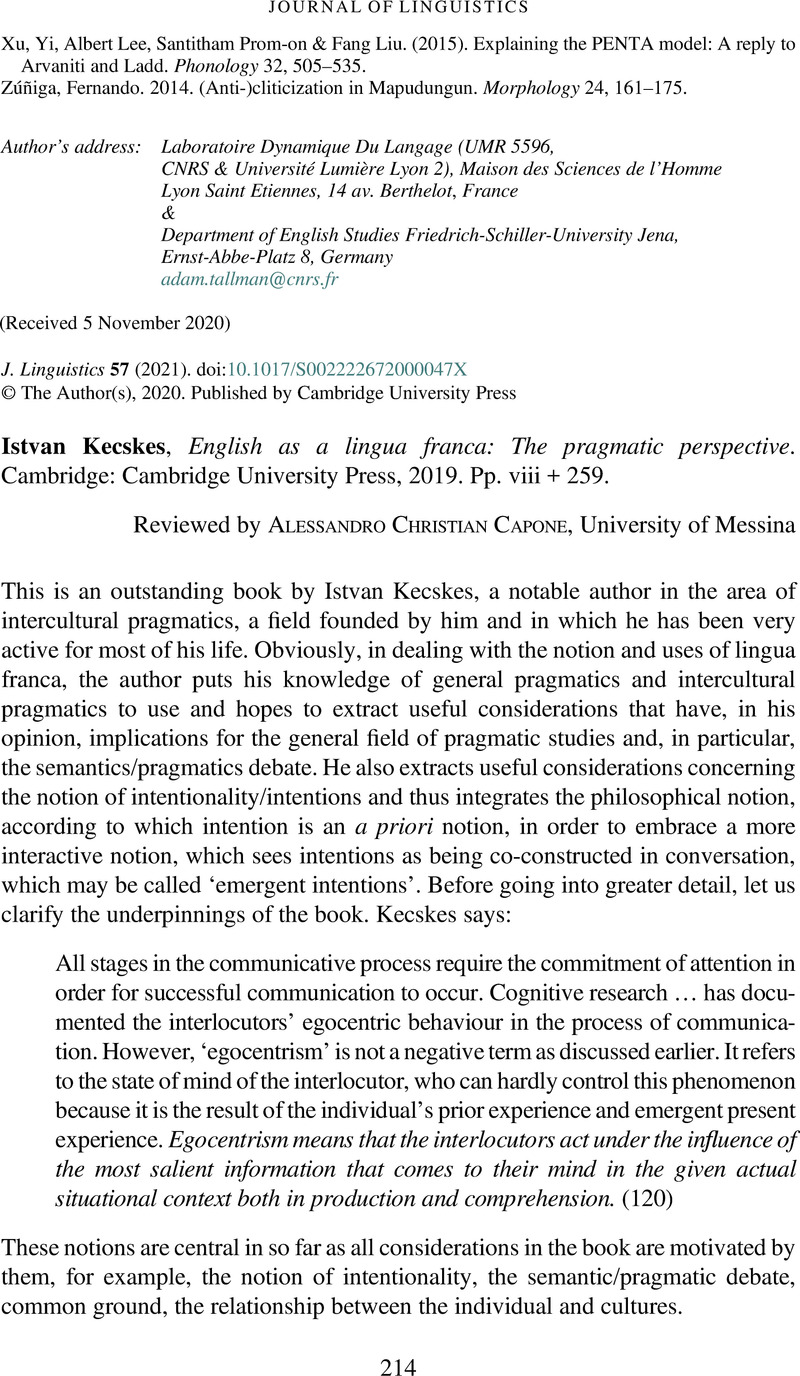Capone, Alessandro.
2019b.
First person implicit indirect reports (or indirect reports in disguise).
Versus: Quaderni di studi semiotici 128,
137–
157. [Reprinted in
Macagno, Fabrizio &
Capone, Alessandro (eds.), forthcoming, 2020.
Inquiries in pragmatics and philosophy 2. Cham: Springer.]
Google Scholar 